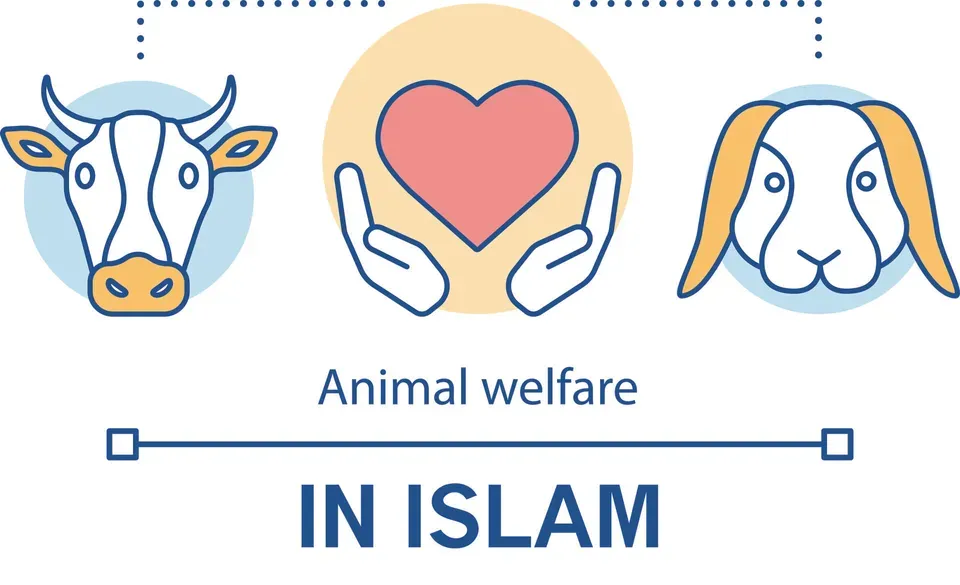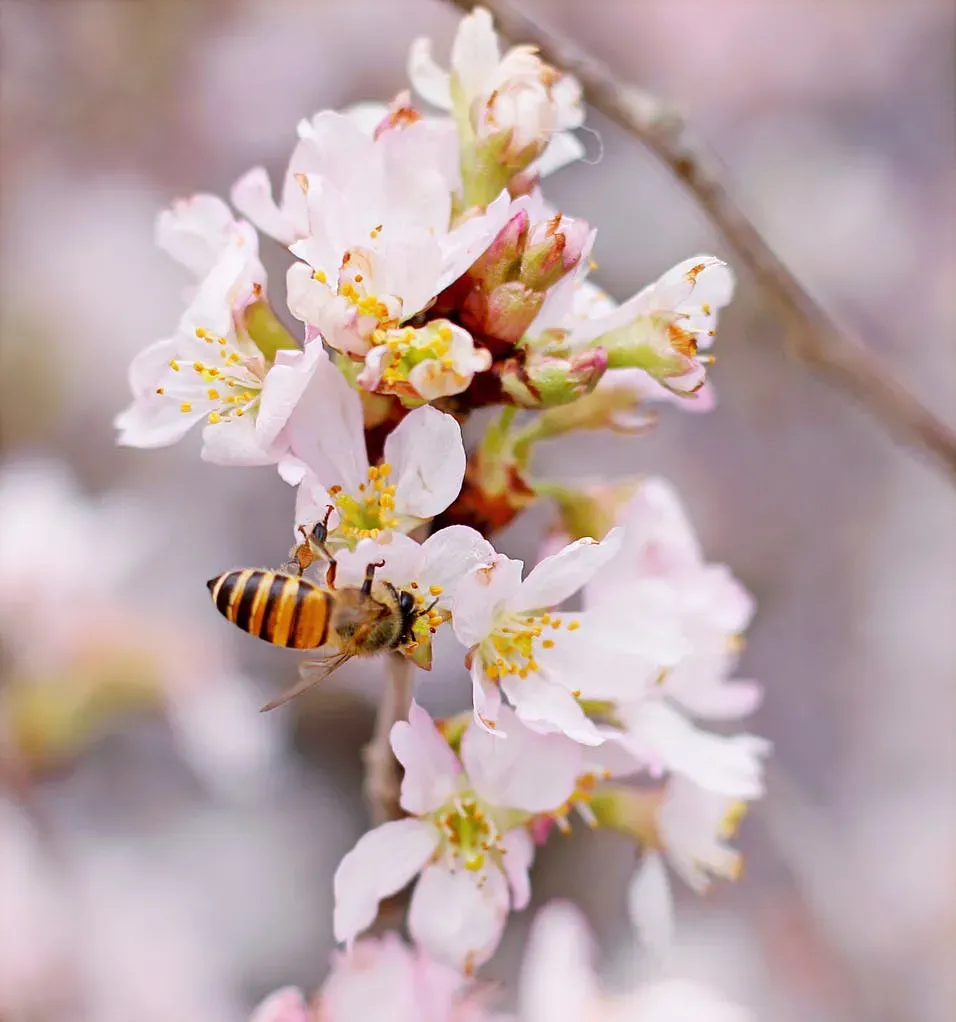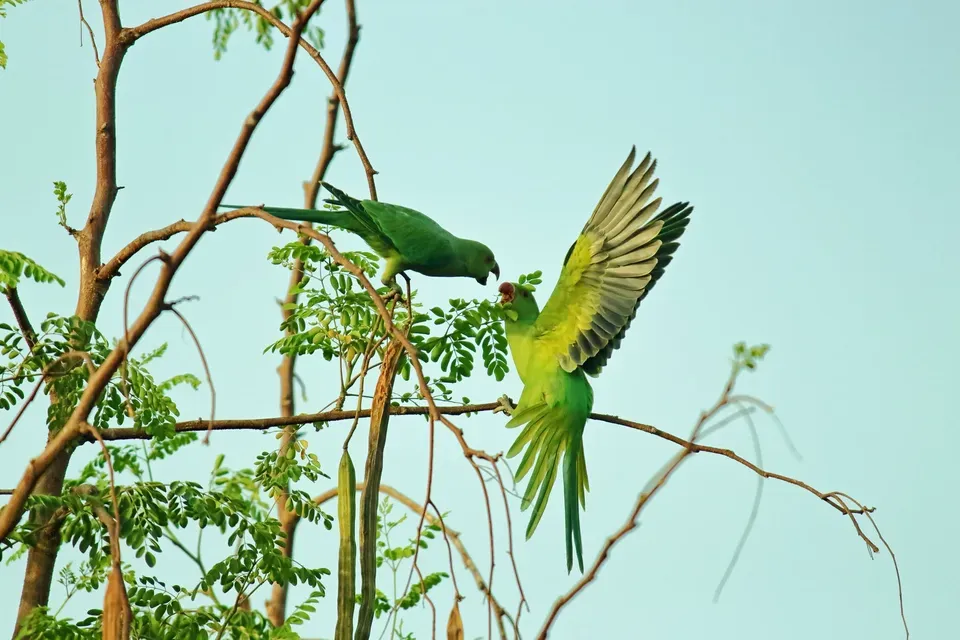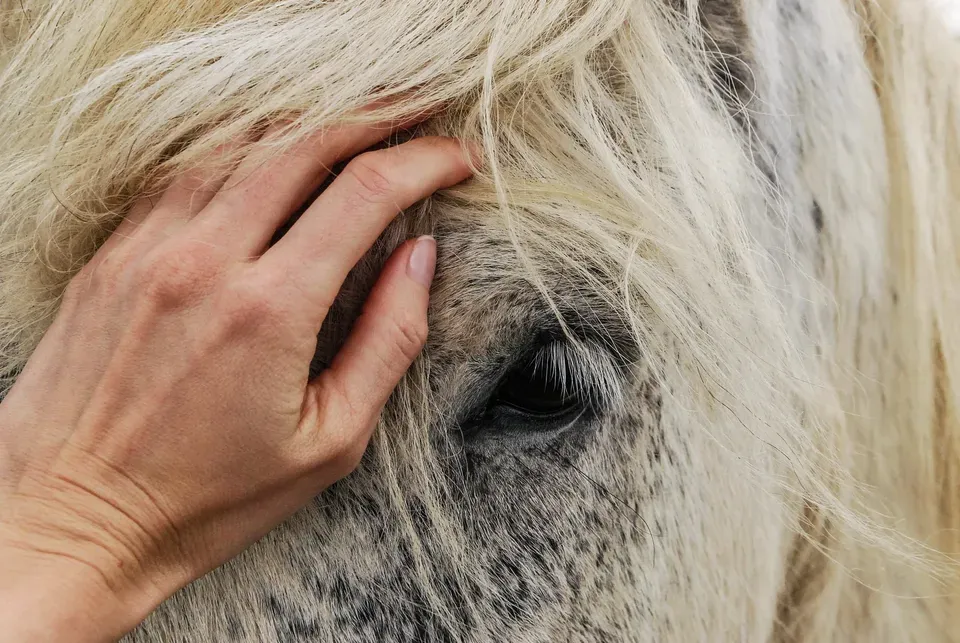Kusimo Temitayo is a freelance writer from Lagos, Nigeria. She has been freelancing for the past five years. She has a degree in Education and English language from the prestigious Obafemi Awolowo University. When she isn't writing, you can find her using the best naturalistic and holistic approaches to keeping her family healthy.
1-877-HALAL-WW (+1-877-425-2599)
Animal Welfare in Islam
The Real Cruelty Free

In light of the recent decision France has taken to ban halal meat, we would like to open up the conversation around ‘Halal’. France’s ban comes from the presupposition that the Islamic method of slaughter is less humane than standard European practice. As a halal certification agency we thought it imperative to set the record straight, not only around the method of ritual slaughter, but also around Islam’s attitude towards animals altogether…
How SHOULD Muslims or halal-conscious consumers treat animals?
Islam views all living creatures, including human beings, animals, and insects, as Allah's creation. And as such, each of these living entities is worthy of respect and being treated nobly.
Long before the emergence of the animal rights movement – or 'animal liberation' – Allah implores the believers to treat animals with kindness and compassion. In the Quran and ahadith literature, numerous divine injunctions account for the sympathy and mercy that needs to be extended towards animals.
On the one hand, Islam teaches us that animals have a specific purpose within the 'creation hierarchy' – their existence fulfills our multiple needs. On the other hand, we are also tasked with their maintenance and upholding of their well-being.
As a result of the high demand for meat and animal products, we have industrialized the slaughtering process to the point where it becomes unethical. Hence, animal cruelty is a universal concern. And as such, we cannot prioritize productivity at the expense of basic compassion. As Muslims, we need to ensure that we uphold the injunction of treating animals with care.
This post highlights the Islamic teachings of animal welfare and how we can look upon animals with a more compassionate eye.
The Holy Qur'an and Animals
The significance of animals pronounced in the Quran; Allah has named six chapter from the Holy Book after animals. Surah Al-Fil is named after the elephant; Al-Ankabut is named after the spider; Al-Naml after the ant; Al-Nahl after the bee; Al-An'am after the flock, and Al-Baqarah after the cow.
So, while Allah has fashioned human beings 'in the best of statures,' every creature has its rights that need to be fulfilled. Every living organism has its worth and is considered to be a part of human society. And as such, humans are required to treat them with compassion and mercy.
Similar to humans, the Holy Qur'an states that animals are part of a community. Each of them is a daughter, sister, mother, or father to his or her fellow-creature.
In Surah al-An'am, Allah says: "There is not a moving creature on earth, nor a bird that flies with its two wings but are a community like you. We have neglected nothing in the Book, then unto their Lord, they all shall be gathered" (6:35).
This verse implores us to show compassion towards animals in the same way we would accord respect to another fellow human being. The Qur'an further describes all living things as 'Muslim' – in that all of His creation submits to His will, and live in accordance to His laws.
In Surah al-Nur, Allah says: "Have you not seen that to Allah extols whoever are in the heavens and the earth, and the bird outstretching (their wings)? (or: in ranks). Each has already known its prayers and extolment, and Allah is Ever-knowing of whatever they perform" (24:41).
This verse serves as a reminder to us that animals are living creatures that are interconnected with a much larger physical and spiritual reality. Their reality is unlike ours.
Equally, animals serve different purposes: they play a role in the balance of the eco-system, in sacrificial rituals, and fuel us in numerous ways. However, Islam entreats human beings to find a balance between enjoying their benefits as Allah intended and respecting their independence while avoiding any cruelty towards them.
Animal Welfare in the Sunnah
There is a rich tradition of the prophet Muhammad (PBUH) concern for animals found in the Hadith and Sunnah. He has shown us the straight path; he is the embodiment of compassion and mercy to all living creatures.
From the sunnah, we derive a template on how the etiquette of handling animals:
1. Animal Hunting for Sports
Islam condones animal hunting for nourishment and food. However, game hunting animals for sport is strictly prohibited.
According to Abdullah Ibn. Amr, the Messenger of Allah, said, "There is not a single person that kills an animal unlawfully, even if it is a bird, without being interrogated by Allah". The companions then asked, "Which way to kill is legitimate?" So he replied: "Cut the throat for the consumption and don't kill to throw away" (Reported by Nassa'l and Hakim).
During the Jahilliyah period (age of barbarism), animals were cruelly tied up and positioned as shooting targets. The Prophet Muhammad condemned inciting violence on animals and prohibited the act of eating "mujaththama" animals (animals tied up and shot with arrows).
2. Mental Cruelty is Forbidden
Abd al-Rahman bin 'Abd narrated that his father said, "When we were traveling with the Prophet, and he had gone to relieve himself, we saw a bird with its two young, and took them from their nest. The mother Bird came and began to beat its wings in grief. Then the Prophet (PBUH) came and said, ‘who has hurt the feelings of this bird by the loss of her young. Give her young ones back to her’.”
3. Kindness to Animals During Slaughter
Muslims are allowed to consume the meat of permissible animals slaughtered according to Islamic rituals. Islam provides us with the necessary etiquette to ensure that the animal goes through a swift slaughtering process with minimal pain.
In Sahih Muslim, it is recorded that the Prophet Muhammad said, "Verily Allah has enjoined goodness to everything; so when you kill, kill in a good manner. So, every one of you should sharpen his knife, and let the slaughtered animal die comfortably." (Book 21, Chapter 11, No 4810)
In another Hadith, the Prophet Muhammed said, "Do you intend inflicting death on the animal twice - once by sharpening the knife within its sight, and once by cutting its throat"? "So, kill in a good manner".
Conclusion
Islam caters for the welfare of living life. The welfare of human beings may be at the forefront of what is considered "ethical," yet the welfare of animals is a crucial cornerstone in the upholding of the religion.
Works cited:
1. Awan JA, Rahim SFU. Animal rights and welfare in Islam. Int J Avian & Wildlife Biol. 2018;3(6):427-430.
2. Learn Religions; Islam's and the Quran's View of Animal Welfare; Aug 9, 2018











